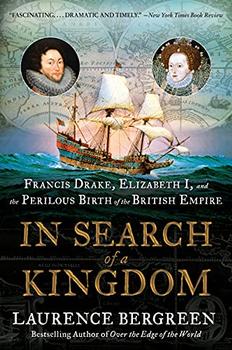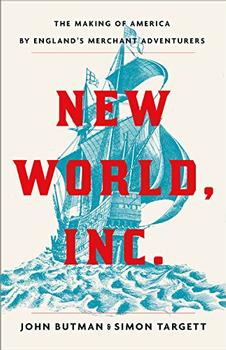Summary | Excerpt | Reviews | Read-Alikes | Genres & Themes | Author Bio

Magellan's Terrifying Circumnavigation of the Globe
by Laurence BergreenMagellan's unprecedented circumnavigation of the globe is the subject of this gripping story of heroism, discovery, and disaster.
Ferdinand Magellan's daring circumnavigation of the globe in the sixteenth century was a three-year odyssey filled with sex, violence, and amazing adventure. Now in Over the Edge of the World, acclaimed author Laurence Bergreen, interweaving a variety of candid, first-person accounts, some previously unavailable in English, brings to life this groundbreaking and majestic tale of discovery that changed many long-held views about the world and the way explorers would henceforth navigate its oceans.
In 1519 Magellan and his fleet set sail from Seville, Spain, to find a water route to the Spice Islands in Indonesia, where the most sought-after commodities — cloves, pepper, and nutmeg — flourished. Most important, they were looking for a passageway, a strait, through the great landmass of the Americas that would lead them to these fabled islands. Laurence Bergreen takes readers on board with Magellan and his crew as they explore, navigate, mutiny, suffer, and die across the seas. He also recounts the many unusual sexual practices the crew experienced, from orgies in Brazil to bizarre customs in the South Pacific. With a fleet of five ships and more than two hundred men, they had set out in search of the Spice Islands. Three years later they returned with an abundance of spices from their intended destination, but with just one ship carrying eighteen emaciated men. They suffered starvation, disease, and torture, and many died, including Magellan, who was violently killed in a fierce battle.
A man of great tenacity, cunning, and courage, Magellan was full of contradictions. He was both heroic and foolish, insightful yet blind, a visionary whose instincts outran his ideals. Ambitious to a fault and not above using torture and murder to maintain control of his ships and sailors, he survived innumerable natural hazards in addition to several violent mutinies aboard his own fleet — and it took no less than the massed forces of fifteen hundred men to kill him.
This is the first time in nearly half a century that anyone has attempted to narrate the complete story of Magellan's unprecedented circumnavigation of the globe — to tell this truly gripping and profoundly important story of heroism, discovery, and disaster. A voyage into history, a tour of the world emerging from the Middle Ages into the Renaissance, an anthropological account of tribes, languages, and customs unknown to Europeans, and a chronicle of a desperate grab for commercial and political power, Over the Edge of the World is a captivating tale that rivals the most exciting thriller fiction.

If you liked Over the Edge of the World, try these:

by Laurence Bergreen
Published 2022
In this grand and thrilling narrative, the acclaimed biographer of Magellan, Columbus, and Marco Polo brings alive the singular life and adventures of Sir Francis Drake, the pirate/explorer/admiral whose mastery of the seas during the reign of Queen Elizabeth I changed the course of history.

by John Butman, Simon Targett
Published 2018
Three generations of English merchant adventurers--not the Pilgrims, as we have so long believed--were the earliest founders of America. Profit-not piety-was their primary motive.